A Road to Progress in Mozambique
A fruit farm in Nampula Province uses capital from an agribusiness fund to improve its farm and benefit their community at the same time.
A fruit farm in Nampula Province uses capital from an agribusiness fund to improve its farm and benefit their community at the same time.
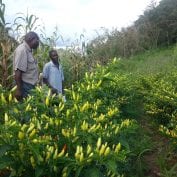
TechnoServe with funding from the European Union is reaching programming to help enable the European Commission to achieve the goal of helping to address core issues currently faced by agricultural industry players and poor households in Zimbabwe, as well as inform future thinking and program design.
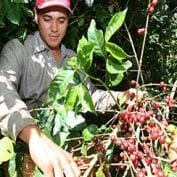
TechnoServe together with the Trade Facilitation Office of Canada, Global Affairs Canada, and Canadian coffee chain Tim Hortons is implementing a four-year initiative to train 1,000 farmers in agronomic and sustainability practices in eastern Guatemala and improve their productivity by 25 percent.
Cesar and Priscilla Díaz have launched a successful catering business in a small town in Chile with the help of the EMERGE program, an Anglo American-TechnoServe collaboration.
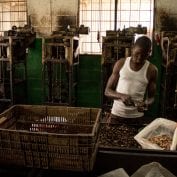
Solutions for African Food Enterprises (SAFE) was a public-private partnership between TechnoServe, Partners in Food Solutions, and USAID that aimed to increase the competitiveness of the African food processing sector to expand availability of affordable and nutritious foods to local populations. The program benefited more than 1,000 food processors who source from more than 800,000 smallholder farmers in five countries.
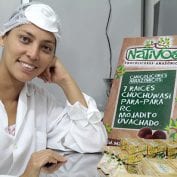
Youth face unique challenges in obtaining formal employment or becoming successful entrepreneurs. Crece Tu Empresa, TechnoServe's program in partnership with Citi Foundation, is working to address the challenge of youth unemployment in Guatemala, El Salvador, and Panama.
Graciela Barrientos is working with her mother Elsa to build a successful childcare provider and training service in El Salvador.
Young entrepreneurs like Audrey Allotey are starting and growing food businesses that provide key products and create jobs in their communities.
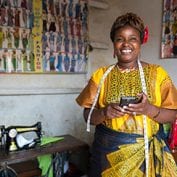
Business Women Connect was born out of research showing that micro-savings products are one of the most impactful tools for women entrepreneurs to access in order to grow their businesses.
Jane Abramovich, leader of TechnoServe's Access to Finance Practice Group, and TechnoServe consultant Evan Spark-DePass explore the role of intermediaries in helping businesses access financing and scale their enterprises.